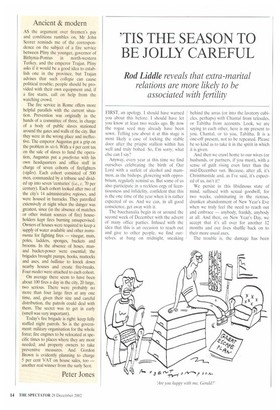Ancient & modern
AS the argument over firemen's pay and conditions rumbles on, Mr John Scorer reminds me of the correspondence on the subject of a fire service between Pliny the younger, governor of Bithynia-Pontus in north-western Turkey, and the emperor Trajan. Pliny asks if it would be a good idea to establish one in the province, but Trajan advises that such collegia can cause political trouble; people should be provided with their own equipment and, if a fire starts, call on help from the watching crowd.
The fire service in Rome offers more helpful parallels with the current situation. Prevention was originally in the hands of a committee of three, in charge of a body of public slaves stationed around the gates and walls of the city. But they were in the wrong place and ineffective. The emperor Augustus got a grip on the problem in AD 6. With a 4 per cent tax on the sale of slaves to fund the operation, Augustus put a praefectus with his own headquarters and office staff in charge of seven cohorts of firefighters (vigiles). Each cohort consisted of 500 men, commanded by a tribune and divided up into seven 'centuries' (i.e.. c. 70 per century). Each cohort looked after two of the city's 14 administrative regiones, and were housed in barracks. They patrolled extensively at night when the danger was greatest, since (in the absence of matches or other instant sources of fire) householders kept fires burning unsupervised. Owners of houses were required to keep a supply of water available and other instrumento for fighting fires — vinegar, mats, poles, ladders, sponges, buckets and brooms. In the absence of hoses, manand bucket-power were essential; the brigades brought pumps, hooks, mattocks and axes, and ballistae to knock down nearby houses and create fire-breaks. Four medici were attached to each cohort.
On average there seem to have been about 100 fires a day in the city, 20 large, two serious. There were probably no more than four large fires at any one time, and, given their size and careful distribution, the patrols could deal with them. The secret was to get in early (smell was very important).
Today's fire brigade is right: keep fully staffed night patrols. So is the government: military organisation for the whole force; fire engines to be relocated at specific times to places where they are most needed; and property owners to take preventive measures. And Gordon Brown is evidently planning to charge 5 per cent VAT on house sales, too — another real winner from the surly Scot.
Peter Jones


























































 Previous page
Previous page